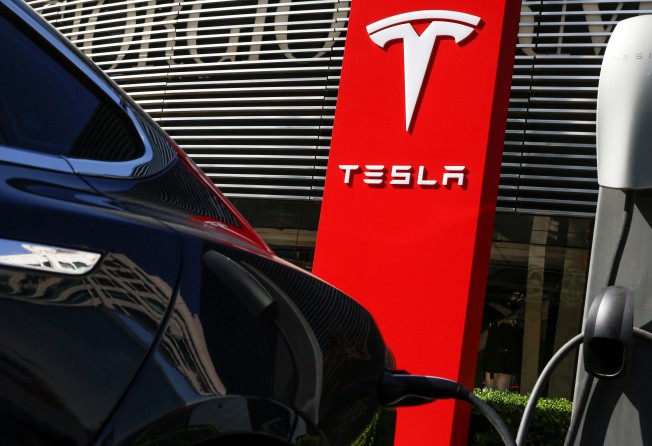Tesla’s Shanghai subsidiary takes it a step closer to making cars in China
The US carmaker’s Hong Kong unit sets up a company in Shanghai that will focus on electric cars, auto parts, batteries and solar panels

Tesla has set up a subsidiary in Shanghai that will focus on R&D related to electric cars, a clear indication that its plans to build a plant in China have been revived.
According to a filing with the National Enterprise Credit Information Publicity System, Tesla Motors HK Limited has registered the wholly owned company with a paid-up capital of 100 million yuan (US$15.8 million).
The licence, dated May 10, allows Tesla to conduct R&D on electric cars, auto parts, batteries and solar panel products. The new company will, however, not be involved in making cars.
Tesla, the biggest-selling electric carmaker in the US, would not comment on its Chinese subsidiary on Monday.
The move came after Tesla founder and CEO Elon Musk said earlier this month that it plans to announce the location of a “gigafactory” in China as early as the third quarter of this year.
“Tesla’s new company in Shanghai is a clear message that it will definitely land in the Chinese market for local production,” said Davis Zhang, a senior executive at Suzhou Hazardtex, a fork-lift manufacturer. “Tesla is still inarguably the leader in electric cars, and its locally-built cars will attract more buyers.”
Beijing announced last month that it would scrap foreign ownership requirements on new-energy vehicles, following President Xi Jinping’s pledge to further open the car-making sector to overseas investors.
Presently, foreign new-energy vehicle makers are subject to a 50 per cent ownership cap in their mainland joint ventures.
The potential liberalisations were believed to pave the way for global companies such as Tesla to set up their own production bases in the world’s largest car market.
Tesla was in talks with the Shanghai municipal government on building a factory at Lingang New City last year, but the negotiations did not come to fruition due to differences on the ownership structure.
The location of Tesla’s newly established Shanghai company is at Lingang, an area close to the city’s free-trade zone.
China, which is the world’s largest new-energy vehicle market, had 1.53 million new-energy cars in 2017, accounting for 0.7 per cent of the total vehicles nationwide, according to the Ministry of Public Security.
Last year, 777,000 electric and plug-in hybrid cars were sold on the mainland, up 53 per cent from 2016.
Beijing has set an ambitious target, whereby new-energy vehicles will account for a fifth of total sales by 2025.
The government has been actively promoting new-energy vehicle development over the past two years as Beijing is adamant in cutting vehicle emissions and reducing air pollution.
The central government offers subsidies to buyers of new-energy cars, while some local authorities distribute free licence plates as a way of bolstering sales of green cars.
Tesla sold 17,000 vehicles on the mainland last year, up 51.6 per cent from 2016, according to the China Automobile Dealers Association.